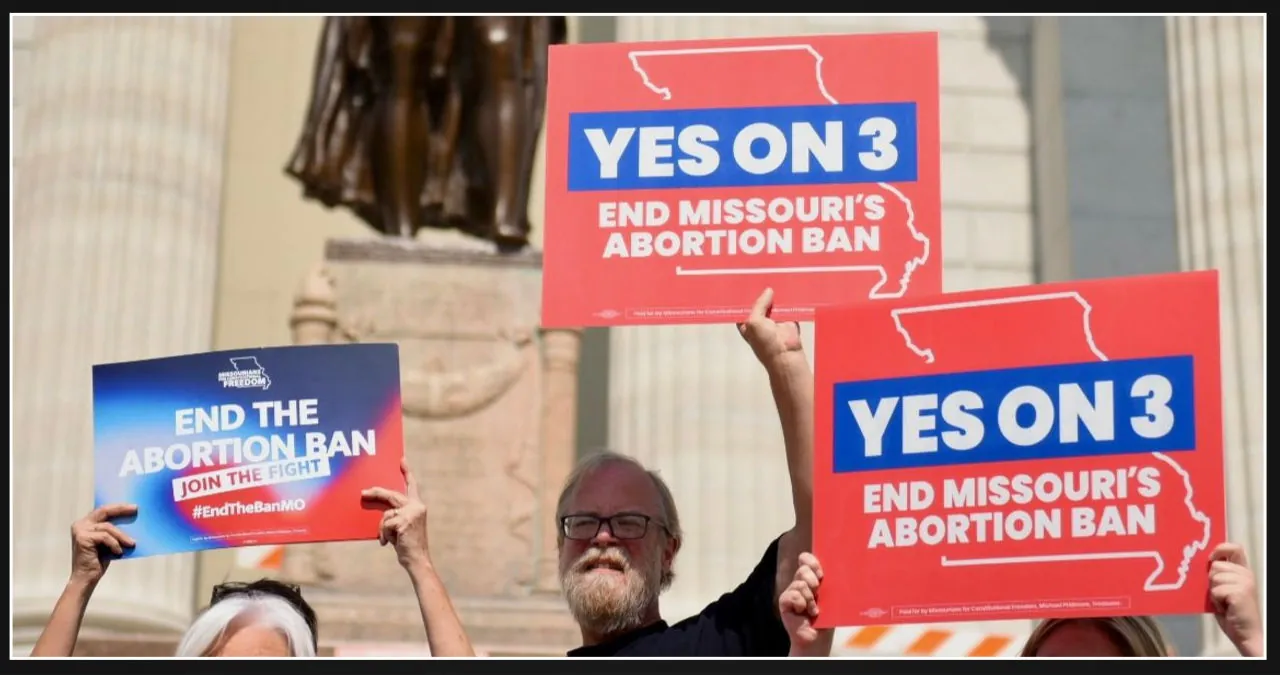In a lawsuit, it is important to maintain consistency in arguments and avoid contradicting oneself in separate legal proceedings.
Undermining the integrity of the judicial system and being inherently unfair, this practice is concerning.
Attorney General Andrew Bailey has completely reversed his stance on the interpretation of Amendment 3, a recently approved ballot initiative in Missouri that aims to legalize abortion in the state. This sudden change of position comes as no surprise, as I had previously predicted.
The Amendment 3 campaign filed two lawsuits against the state due to the use of inflammatory ballot language suggesting that it would result in unregulated abortion in Missouri.
In the initial lawsuit (out of the five lawsuits revolving around Amendment 3, I will focus on two here), the state stood by a blatantly inaccurate ballot summary presented by Secretary of State Jay Ashcroft. The summary falsely asserted that the ballot initiative would lead to “unregulated and unrestricted abortions until live birth, without the need for a medical license or the possibility of malpractice.”
In the second lawsuit, after the court had deemed the ballot summary inaccurate and unfair, the state defended the amendment by asserting that it had fair ballot language.
The proposed law aims to prevent any form of regulation on abortion, even those intended to safeguard the well-being of women seeking abortions. It also seeks to eliminate any legal consequences, both civil and criminal, for individuals who perform abortions and cause harm or death to pregnant women.
Bailey and his team never believed any of it, despite the dreadful and definitive nature of the situation.
The state, after strongly asserting that Amendment 3 would completely ban any regulation of abortion, is now contending that it can still regulate abortion care in a way that would effectively eliminate it.
Abortion opponents were highly successful in implementing overregulations to make it nearly impossible to obtain an abortion, even when it was still recognized as a constitutional right in the U.S. These regulations, referred to as “targeted regulation of abortion providers” (TRAP laws), had a significant impact on Missouri. As a result, the state was left with just one abortion clinic, leading to a drastic decline in the number of abortions performed, from over 9,000 in 2016 to merely 150 in 2021.
The TRAP strategy involves implementing regulations that may seem reasonable to those who are not familiar with the situation. However, these regulations are actually medically unsuitable and intentionally designed to be impossible for clinics to adhere to, thereby preventing them from operating.
Missouri has implemented a classic TRAP law, which mandates that abortion providers must secure admitting privileges at a hospital within a 30-mile radius.
Admitting privileges at hospitals are often determined based on the number of patients a doctor admits annually. However, it is worth noting that abortion patients rarely require admission to a hospital.
Hospitals have the authority to grant privileges to individuals for credentialing purposes, however, they are often reluctant to extend these privileges to abortion providers. The reason for this hesitance is that abortion providers typically do not admit patients to the hospital, and their association with this controversial medical procedure often invites political scrutiny.
Missouri and other states that oppose abortion argue that requiring admitting privileges promotes the continuity of care by ensuring that the same doctor who performed the abortion also handles any complications. However, this claim goes against current medical practices where patients admitted to a hospital are usually treated by a hospitalist, a doctor specialized in hospital care, rather than an outpatient provider.
Many patients often have to endure long journeys in order to access an abortion provider. Unfortunately, in the rare instances where complications arise, it is unlikely that the nearest hospital will have the necessary privileges to accommodate their specific provider.
The most frequent complication that may arise after a medication abortion is an “incomplete abortion.” In such cases, the required treatment is similar to that of an incomplete miscarriage. In most instances, emergency rooms can easily provide this treatment without the need for hospital admission.
It is particularly absurd and offensive when Missouri officials make the claim of “continuity of care,” especially considering their efforts to make women travel out of state for healthcare.
The officials who previously argued that Amendment 3 would lead to completely unregulated abortions are now defending the admitting privileges requirement, along with other medically unjustifiable regulations, as permissible under the law.
In previous lawsuits, the state argued that Amendment 3 would surpass the abortion rights recognized in Roe. They claimed that abortion regulations would have to withstand “ultrastrict” scrutiny and that it would result in unregulated abortion.
The state accurately pointed out that Amendment 3 extends beyond the scope of Roe. This amendment introduces a new and extremely rigorous standard of review, specifically aimed at invalidating TRAP laws.
The standard being discussed is more stringent compared to Roe’s “strict scrutiny” standard or Planned Parenthood v. Casey’s “undue burden” standard. It is important to note that even under the weaker undue burden standard, the U.S. Supreme Court invalidated admitting privileges requirements in two states. However, this only occurred after a prolonged legal battle, during which the clinics had to prove that the requirement had no medical benefit and placed an excessive burden on women seeking abortions.
Amendment 3 shifts the responsibility onto the state to demonstrate that a regulation genuinely safeguards patient health and aligns with established medical practices. This burden becomes insurmountable for the state since numerous laws, supposedly aimed at ensuring the safety of abortion procedures, do not extend to miscarriage care, which involves identical medications and procedures.
The state is now arguing that the amendment simply reinstated the standard set by Roe/Casey. Therefore, they believe that all the TRAP laws that previously made abortion inaccessible in Missouri should be upheld.
The state is now presenting arguments that contradict its previous stance on abortion regulation. Surprisingly, it is even asserting that abortion providers lack the right to legally challenge Missouri’s TRAP laws.
The legal principle of “judicial estoppel” is designed to prevent litigants from adopting contradictory positions in court. It allows the court to prohibit a litigant from making inconsistent arguments. This doctrine should be applied in this case.
The Missouri Supreme Court has provided a clear explanation of the purpose of judicial estoppel. According to their explanation, judicial estoppel is used to uphold the integrity of judicial proceedings and to prevent parties from manipulating the legal process by adopting contradictory positions in different cases.
Proponents of a ballot initiative shouldn’t have to resort to multiple lawsuits just to counter a legal position that the state doesn’t truly uphold. The concept of estoppel could serve as a deterrent, preventing state officials from employing antidemocratic tactics to obstruct an initiative petition in the future.
Our officials and the courts have a responsibility to provide us with accurate information. Likewise, advocates on opposing sides of an issue should show each other a fundamental level of honesty and transparency.
During my conversation with Sam Lee, a prominent anti-abortion leader, I inquired about his stance on Amendment 3 in the event that it became law. Surprisingly, he hesitated to provide a clear answer. It became evident during the election period that those who were disseminating exaggerated misinformation about Amendment 3 did not genuinely advocate for any measures to ensure even minimal access to abortion.
Maintaining democracy and the rule of law relies on fair play and discussions rooted in facts. Those individuals who have attempted to deny us these fundamental principles should be held responsible, both legally and by the public.






